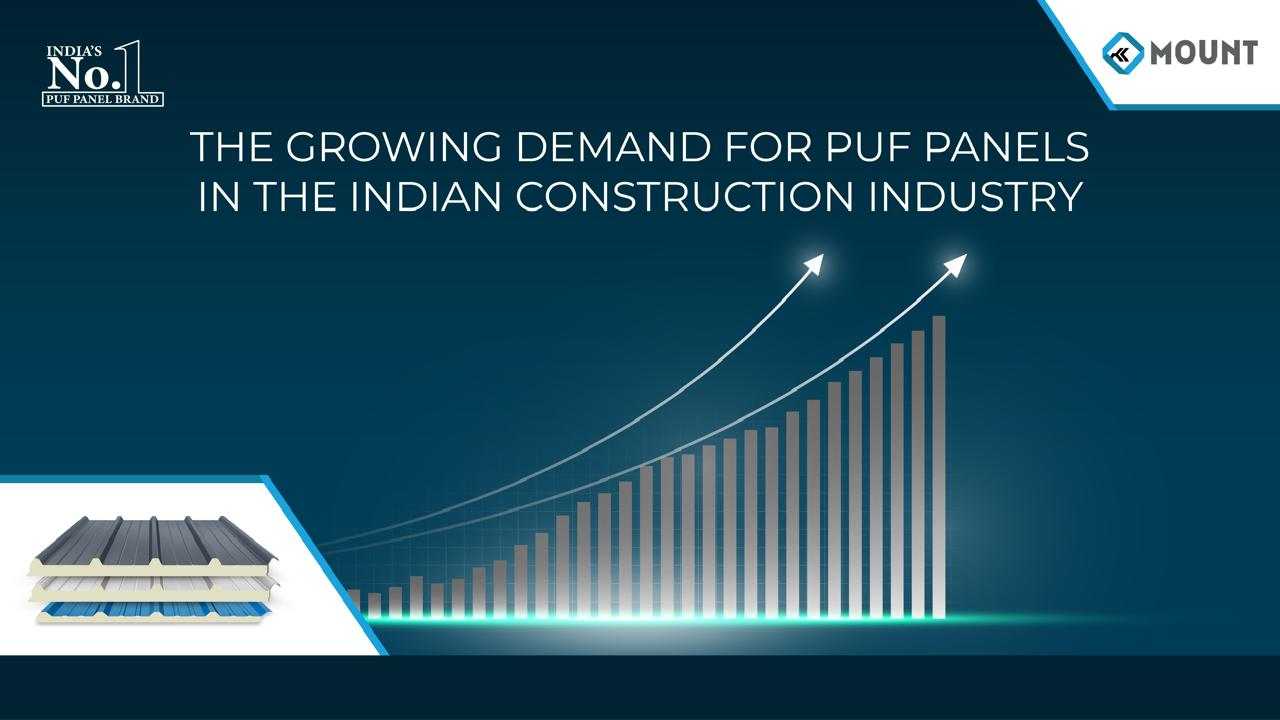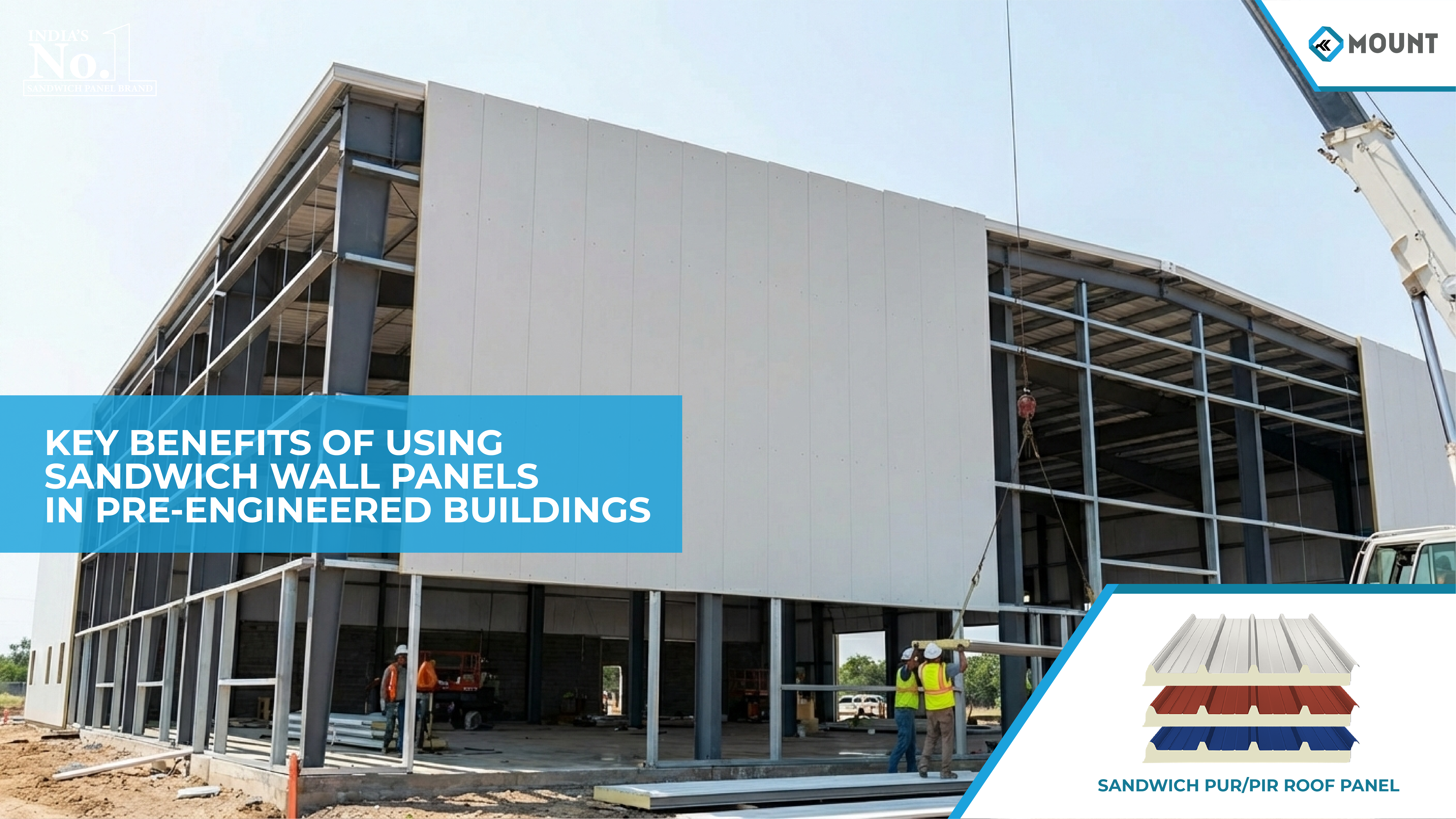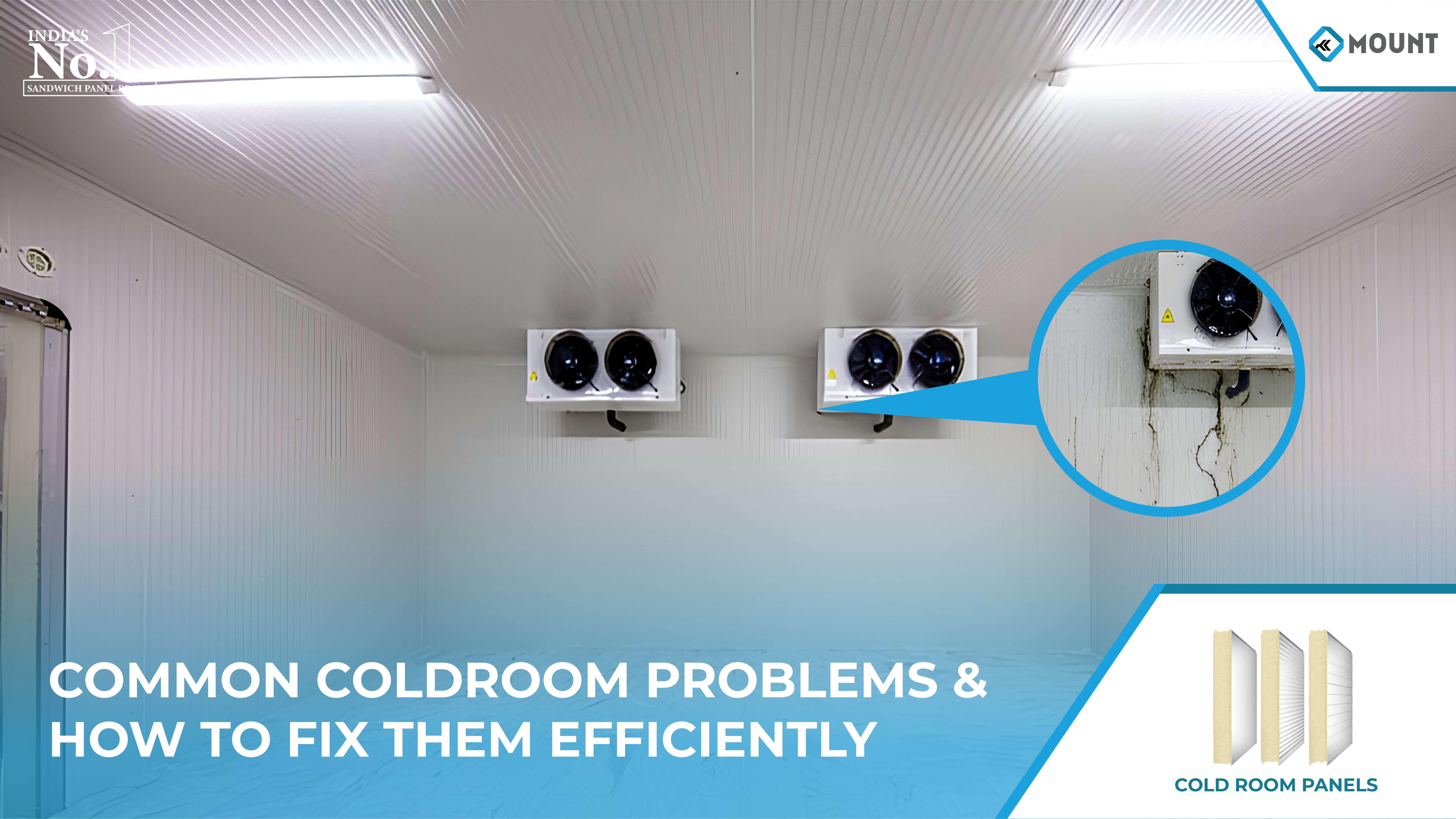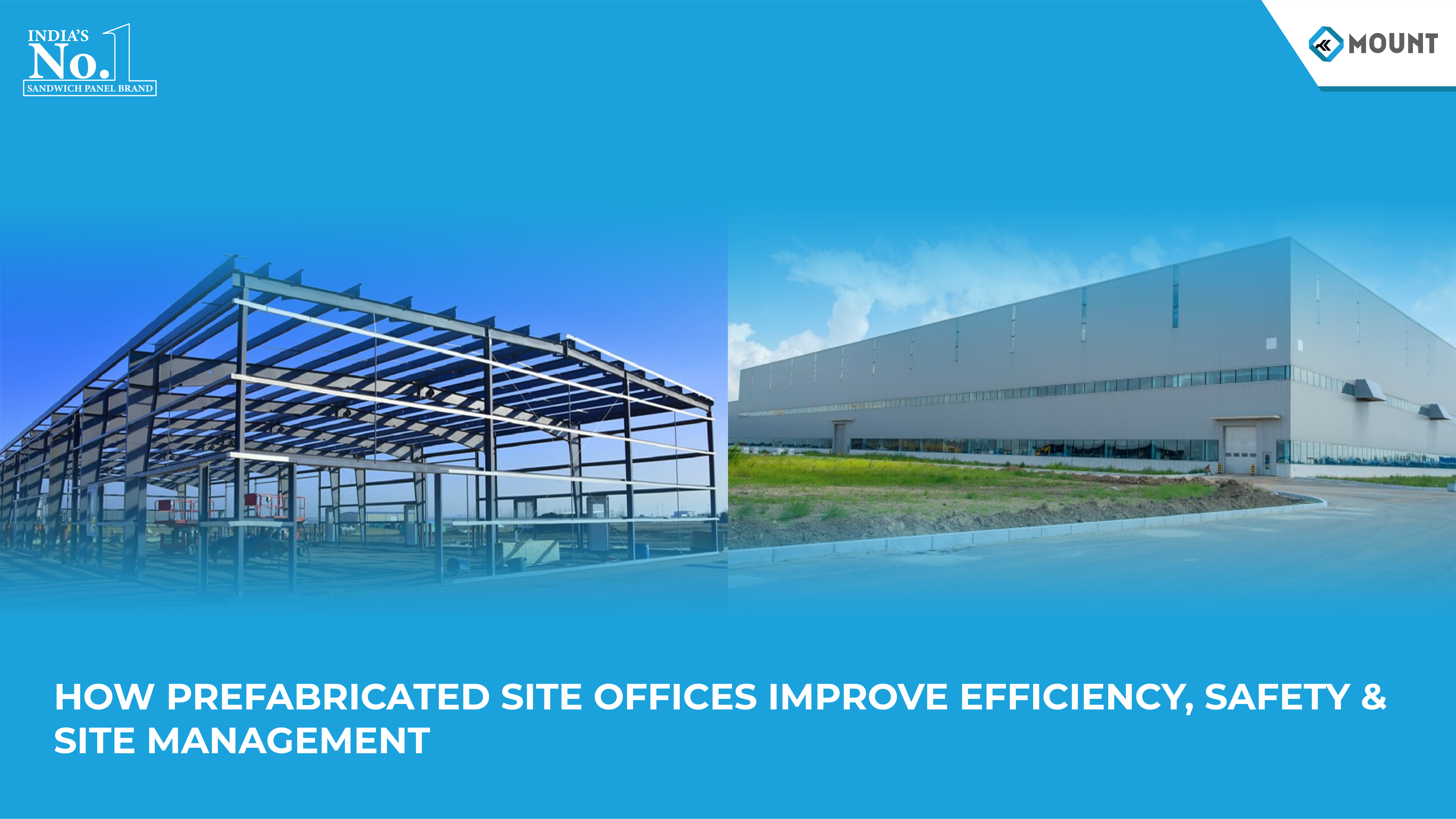
The Growing Demand for PUF Panels in the Indian Construction Industry
India’s construction sector is experiencing a revolutionary transformation, and PUF panels are at the forefront of this change. As urbanization accelerates and builders seek sustainable, cost-effective solutions, construction professionals must understand why these innovative materials have become indispensable across residential, commercial, and industrial projects. From sprawling apartment complexes to massive industrial warehouses, this technology has emerged as the preferred choice for forward-thinking developers nationwide. At Mount, we’ve witnessed firsthand how modern insulated building solutions are reshaping the way India constructs its future infrastructure. These lightweight, insulated systems offer exceptional durability, rapid installation, and impressive thermal efficiency that traditional materials simply cannot match. Government initiatives promoting eco-friendly construction practices have further accelerated widespread adoption, positioning innovative manufacturer solutions as essential components for contemporary Indian development projects.
Why Indian Builders Are Embracing Advanced Building Solutions
The rapid urbanization sweeping across India has created unprecedented demand for construction materials that balance speed, efficiency, and sustainability. PUF panel price considerations have become central to construction planning because they deliver remarkable value when analyzed comprehensively. Traditional construction methods often require extended timelines and generate substantial waste, but prefabricated insulated systems streamline the entire building process significantly. Mount’s construction expertise shows that builders consistently appreciate these solutions for their lightweight nature – they dramatically reduce transportation costs and labor requirements compared to conventional alternatives. The market for modern building materials has grown exponentially because they require minimal on-site finishing compared to standard approaches. Installation speeds are remarkable; what might take weeks with traditional methods takes mere days with these prefabricated solutions. This efficiency translates directly into cost savings, a critical factor driving adoption across all construction segments.
Cost Efficiency and Economic Benefits
One of the primary reasons advanced building systems have captured India’s construction market is their exceptional cost-effectiveness throughout project lifecycles. Wall puf panels offer outstanding value when you factor in reduced labor hours, minimal waste generation, and dramatically accelerated project timelines. Mount recognizes that builders operating under tight budgets appreciate the predictability and transparency that modern supplier pricing provides in today’s competitive landscape. Reduced installation time directly translates to lower project overhead costs and improved profitability margins for developers. Energy efficiency benefits compound long-term savings; buildings constructed with proper thermal specifications consume significantly less energy for heating and cooling operations. This makes them particularly attractive for warehouses, cold storage facilities, and temperature-controlled environments where operational costs directly impact bottom-line profitability. The financial advantages extend beyond immediate construction economics to encompass lifetime building operation expenses and sustainability considerations.
Sustainability and Environmental Impact
India’s commitment to sustainable development has catalysed interest in environmentally responsible construction materials for modern projects. Puf panel manufacturer innovations represent significant steps toward green building practices by reducing material waste and energy consumption substantially. These products require minimal processing compared to traditional alternatives, lowering their carbon footprint considerably. Mount supports builders who prioritise environmental stewardship through solutions that align with international sustainability standards and certifications. Modern prefabricated building materials incorporate recycled content and employ processes designed to minimise environmental impact throughout production. The insulation properties inherent in these systems mean buildings require less energy for climate control throughout their operational lifespan – a benefit extending far beyond construction completion dates. Government schemes promoting Energy Conservation Building Code compliance have made these materials increasingly attractive to developers seeking certification advantages. The lightweight nature of contemporary solutions reduces transportation emissions, contributing to broader environmental objectives while supporting India’s climate commitments.
Performance and Technical Advantages
PUF panel thickness specifications must be carefully selected based on climate conditions and building requirements for optimal performance results. Warehouse applications typically require 75-150mm configurations, while residential spaces often utilise 50-100mm specifications based on regional needs. Mount’s technical expertise ensures clients select an appropriate thickness that balances thermal performance with structural requirements. Sandwich panels manufactured using advanced techniques provide superior insulation values compared to conventional building materials. The composite construction delivers exceptional strength-to-weight ratios, making these solutions ideal for high-rise applications where structural efficiency matters tremendously. Sound attenuation properties prove valuable in commercial spaces, hospitals, and educational facilities where noise control is essential. Fire resistance ratings meet or exceed national building code requirements, providing safety assurance for all construction types.
Government Support and Future Outlook
India’s policy landscape has become increasingly favourable for innovative construction materials in urban development projects. Advanced prefabricated solutions receive indirect support through various government initiatives promoting sustainable urban growth. Wall sandwich panels have expanded significantly with manufacturing hubs now distributed across multiple Indian states, generating substantial employment opportunities. Mount observes growing interest from government projects, institutional construction, and large-scale commercial developments nationwide. Building codes and standards are evolving to acknowledge the benefits of modern prefabrication, removing regulatory barriers that previously hindered mainstream adoption. Educational institutions, hospitals, and warehouses increasingly specify modern material requirements in tender documents, reflecting mainstream acceptance. The trajectory suggests continued growth as awareness expands and performance data accumulates across diverse project types and climates.
Conclusion
The growing demand for Sandwich PUF panels in Indian construction reflects a fundamental shift toward efficiency, sustainability, and innovation in modern building practices. Mount remains committed to supporting this transformation by providing premium building solutions and comprehensive technical expertise. As urbanisation continues accelerating and construction standards evolve, these versatile materials will undoubtedly play increasingly central roles in shaping India’s built environment. Whether you’re planning commercial facilities or residential projects, choosing quality construction solutions from experienced suppliers ensures optimal performance throughout project lifecycles.
FAQs
Q: What are sandwich composite panels and why are they important in construction?
A: Polyurethane foam composite materials are innovative building solutions consisting of rigid foam cores sandwiched between protective layers. They’re important because they offer superior insulation, rapid installation, lightweight properties, and cost-effectiveness compared to traditional approaches. Mount’s technical expertise demonstrates their versatility across residential, commercial, and industrial applications throughout India.
Q: How do modern prefabricated building material costs compare economically?
A: While initial quotations may appear similar to conventional options, the total cost of ownership is significantly lower across project lifecycles. Reduced labor expenses, minimal installation time, decreased material waste, and superior energy efficiency create compelling economic advantages over building lifespans. Mount helps clients understand complete financial pictures when evaluating construction material investment decisions.
Q: What specifications should I consider for my construction project requirements?
A: Appropriate material specifications depend on your climate zone, building purpose, and thermal requirements for optimal results. Warehouse applications typically require specific configurations, while residential projects utilize different standards based on regional conditions. Mount’s technical team provides customized recommendations based on your specific project needs and geographical location.
Q: Can these advanced materials be used for all residential construction types?
A: Absolutely. Modern insulated building systems are increasingly popular in single-family homes and multi-story residential complexes nationwide. Their insulation properties maintain comfortable interior temperatures year-round, reduce noise transmission, and provide structural integrity throughout building lifecycles. Mount supplies builders with solutions meeting all safety requirements and building code compliance standards.


